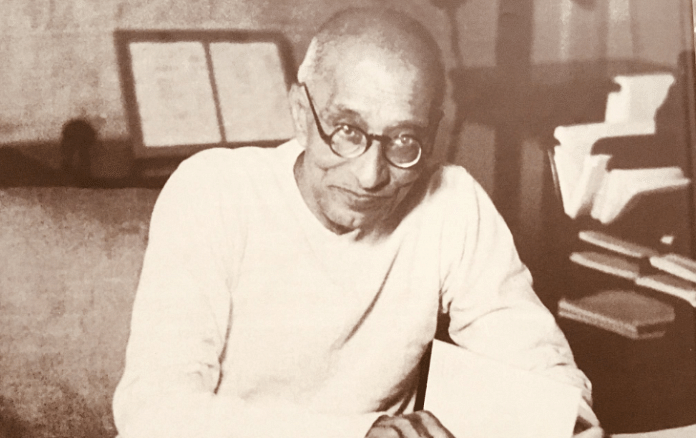The Swatantra Party, founded by C Rajagopalachari, was a glorious enterprise. It fought the Nehru-Mahalanobis economic model, which assumed that commissars in Yojana Bhavan knew better than ordinary citizens, entrepreneurs, traders, farmers. Its leader, who was popular as Rajaji, coined the expression “Permit-Licence Raj” to describe a dispensation more intrusively tyrannical than the one it had replaced: the British Raj. After the infamous 1955 Avadi session of the Congress party, the government of the day adopted “industrial licensing” as its stated policy. Besides the dozens of state and local approvals that an Indian entrepreneur needed, she now also needed a “license” from Delhi. And getting this license was a 17-step process, which took a minimum of four years.
The Swatantra Party, which turned 60 years this Tuesday, was not opposed to licensing only because it was inefficient, costly and destructive of national wealth and income. The party took a higher moral ground. The corruption and cronyism inherent in the Licence Raj was sure to corrode the moral fabric of a country that had yet to recover from the character-destroying legacies associated with centuries of foreign rule. After all, no middle-class entrepreneur could afford to wait four years and employ dozens of liaison officers in Delhi. Therefore, licences were obtained only by the rich and well-connected. India rapidly became a plutocratic oligarchy that chose to call itself socialist.
The Swatantra Party understood that left to themselves, the people of India would use their ingenuity to prosper – which, as one irrepressible Swatantra member Piloo Mody pointed out, routinely happened among Indians outside India. One of the Swatantra stalwarts Minoo Masani emphasised that the abridgment of economic freedom was the first step down the slippery slope where finally all liberties would get extinguished. His prophecies sadly came true in 1975 when the Emergency was declared. During that ill-fated period, the highest independent court in our land ruled that Indian citizens did not have the fundamental right to life and liberty – why bother talk of the pursuit of happiness or the possession of property.
Because it was uncompromising, possibly even sanctimonious in its commitment to a moral process in its political endeavours, the Swatantra Party could not survive in the fractious woods of Indian politics. But one should never forget the fact that the Swatantra managed to prevent a national calamity. In the glorious Soviet Union and People’s Republic of China, the forced collectivisation of agriculture resulted in the deaths of millions of people in each of those fraternal socialist countries. The socialist Raj of India toyed with the idea of introducing collective farming in India. The Soviet Union willingly gave “aid” for a couple of “demonstration state farms”. It all looked ominous. The Swatantra Party allied with the intrepid Charan Singh to successfully torpedo this insane idea and thus prevented a tragic famine.
The other thing that one should not forget is that 17 years after the Swatantra Party’s demise, on 4 August 1974, one of the greatest leaders of modern India, the redoubtable PV Narasimha Rao actually adopted many of the policies advocated by the Swatantra Party. Rao abolished industrial licensing and defanged mysterious acronyms like DGTD, DGSD, CCI, MRTP, FERA and so on. Just like the ghost of Hamlet’s father pointed out to that worthy Dane that there was something rotten in his state, so too did Rajagopalachari speak from the world beyond to Narasimha Rao. Luckily, Masani was alive to see his beloved country finally moving into a world of sanity.
Even in its defeat and its untimely demise, the Swatantra Party has left behind a fragrant, unforgettable, important and precious legacy.
The author is an entrepreneur and a writer. Views are personal.




Sharad Joshi a farmer leader and economist had made an effort ti revive Swatantra Party in the name of Swstantra Bharat Party. I was lucy to be present at the snnouncement ceremony held in Mumbai in presence of Mimu Masani. Unfortnately this party could win seats in Indian political system. At present, Swarna Bharat Party led by Sanjeev Sabhlok is trying hard to fight socialism out of India. If we are serious we must strengthen this party.
In response to Sanjeev Sablok’s comment- because those who don’t study history are condemned to repeat it!
A bit pointless living in history when you waste your life doing nothing.. If you have the calibre, join SBP and lead.
We should also remember the seminal work done by a NGO, “ Forum of Free Enterprise” founded A.G. Shroff in educating the people about the counterproductive policies adopted by the then government in the name of socialism. Indira Gandhi was the worst culprit in this respect. In the 1970s, when she ruled India, Income Tax had 11 slabs and the highest slab had tax incidence of mind boggling 97.5%!!!. No wonder, the economy was transgressed by invasion of a parallel system known as black money. This was Indira Gandhi’s contribution to Indian economy.
Thanks but why this continuing fixation with the failed experiments of the past. Why not focus on Swarna Bharat Party which is not only taking forward the key message of Swatantra Party but doing so in a much better way with far deeper knowledge and policy acumen. I find it disappointing that after 21 years of working to bring a liberal party to India, all we still get are feeble and largely irrelevant recollections of a dead party.
If he had become the prime minister, Bharata khanda would have become a developed, advanced industrialised country long ago.
In the age of social media, I have come across the first glimpse of Nehruvian Model of Economy which Khongress boasts of…. The centralisation of power always corrupt the system….. It means Crony Capitalism was the gift of Nehru only and Indira and Rajiv Gandhi continued with it….. After defeat of Vajpayee in 2004, the Crony Capitalism again flourished under Economist PM MMS….